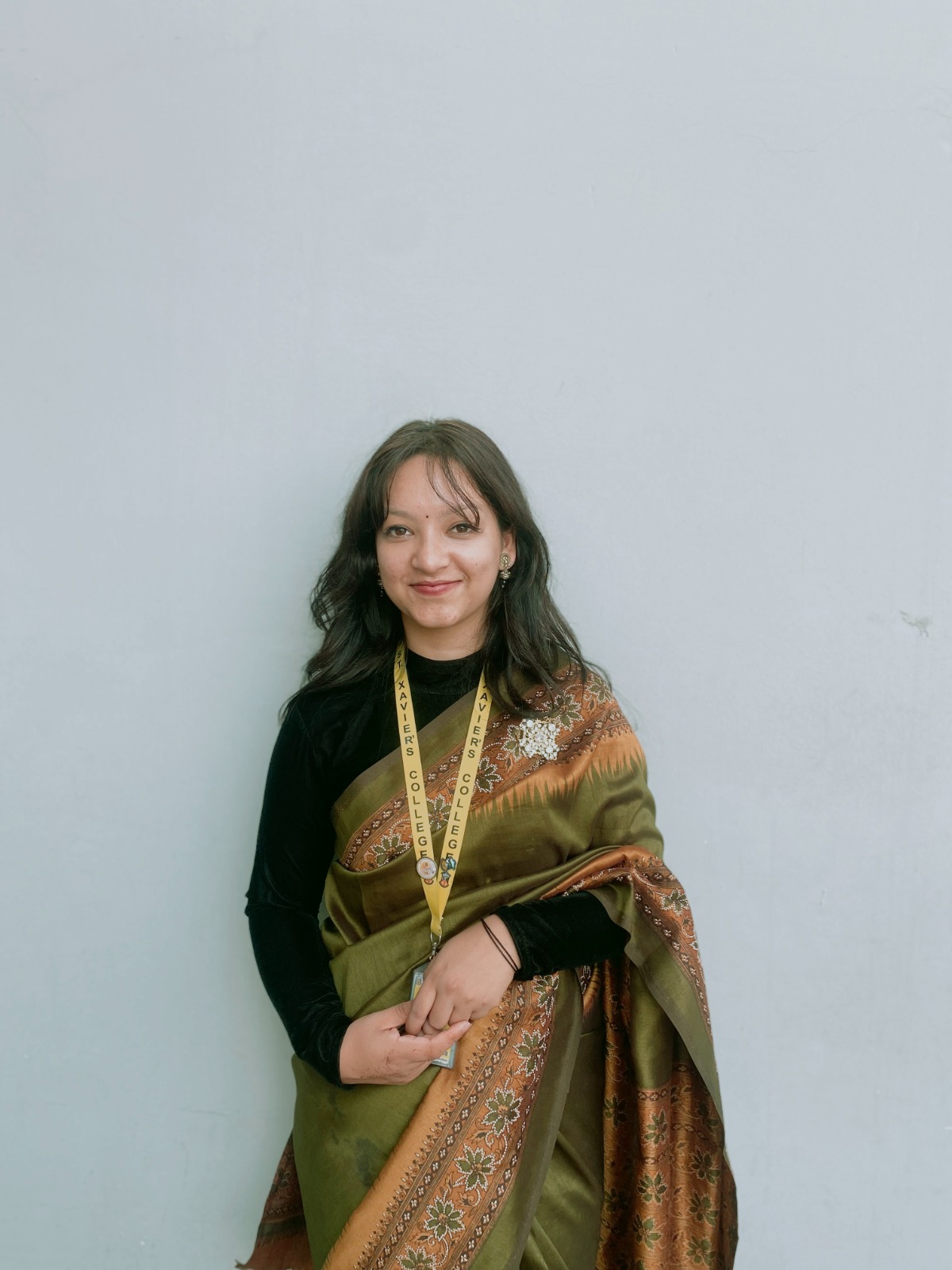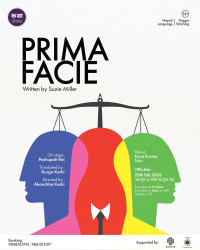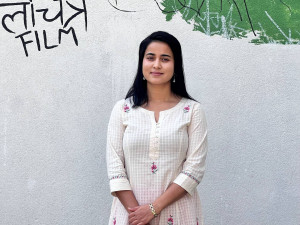Culture & Lifestyle
My mother saw my potential long before I did
Asmita Adhikari discusses her favourite songs, the support that keeps her going, and her plans for overseas performances.
Aarya Chand
Asmita Adhikari never planned to stand in the spotlight; she used to shy away from it. A trained nurse from Damak, Jhapa, she grew up quietly singing bhajans at home, encouraged by her mother, who saw her potential long before she did. Her breakthrough came in 2018 when she gained national recognition as the third runner-up in Nepal Idol Season 2.
Fast-forward to 2023, the shy girl who often hesitated to sing in front of a crowd embarked on a solo concert tour across 12 major cities in the United States, including New York, Los Angeles, Dallas, and Atlanta.
In this conversation with the Post’s Aarya Chand, Adhikari discusses her journey balancing nursing and music, the challenges of maintaining her vocal health while performing, and her plans for new music releases.
How did your early interest in music develop alongside your decision to study nursing?
Since I was young, I’ve always wanted to be a singer. I enjoyed playing instruments, and those around me often said I had a good voice. Even though I don’t come from a musical family, I felt a natural pull toward music from a young age. That passion stayed with me and grew stronger over the years.
My mother, whom I’m very close to, always supported me. Academically, I chose nursing because I wanted to work in the medical field. It seemed a better fit than other subjects, and I planned to continue singing alongside my studies. I began taking vocal classes while still in school and later joined ‘Nepal Idol Season 2’, which marked the beginning of my musical journey.
What role has your family played in your path as a singer?
I began my singing journey with religious songs. Ours is a small family—just my parents, brother, and me. My father worked abroad, and although he wasn’t around much, I have always felt his unwavering support. I am a reserved person and, in the beginning, didn’t enjoy singing in front of others. But my mother kept encouraging me, and that helped me build confidence over time.
You recently performed live at the National Music Awards for the first time. What was that experience like?
Two years ago, I won the Best Playback Singer (Female) and Best Duet Song awards at the Music Awards. I was invited to perform then, but my busy schedule didn’t allow it.
This year, the timing worked out perfectly. I was once again invited—this time to perform a tribute to Sambhujeet Baskota, a respected and beloved figure in Nepali music. I happily accepted the opportunity.
Over the years, I’ve sung several of his songs, including tracks from ‘Chhakka Panja’ and other films, so singing for him at that stage felt especially meaningful. Although there wasn’t much time to prepare, I rehearsed and performed two of his songs for the occasion.

How do platforms like the National Music Awards make a difference for singers, especially women?
The Radio Kantipur National Music Award is highly regarded in the industry. Recognition from such a national platform is a significant achievement, whether it’s for a male or female singer.
It’s something to be proud of, and it inspires us to keep moving forward. Awards like these aren’t just motivating for female playback singers, but for artists across all categories.
Your songs like ‘Sali Man Paryo’, ‘Tadha Vaye Pani’, and ‘Babari Rang Ma’ are loved by many—how do you select your projects or decide which songs to lend your voice to?
Whenever I receive a song offer, I review the lyrics to determine its message and whether it’s meaningful or simply entertaining. I also consider the overall composition, the composer and writer, and the way the song comes together. I try to create well-made and thoughtful songs.
If a song promotes a negative message or goes against social values, I choose not to do it. I don’t select songs based on whether I think they’ll become popular, because that’s never certain. Instead, I focus on the quality of the song and make decisions based on that.
What are some of the challenges you’ve faced as a singer?
As singers, our voice is our main instrument, and one of the biggest challenges is maintaining it. We need to be aware of how we use our voice, especially when we’re performing frequently or for long periods. The strain varies from person to person—some can perform for hours without much trouble, while others may feel the effects more quickly. So, it’s important to understand and take care of our vocal health.
Another challenge, particularly in Nepal, is the travel involved. Since the country has such varied terrain, hills, mountains, and remote areas, we often have to travel on difficult routes. There have been times when I’ve faced travel-related issues for days. Still, I try to enjoy the process and take it as part of the journey. I believe this is a great time for music in Nepal, and no matter how far I have to travel, once I’m on stage, I forget the discomfort and just focus on connecting with the audience.
I remember a performance in Dhangadi when my voice was affected for the first time in five or six years due to a cough and cold. Until then, I had only heard about vocal strain, but that experience made me realise how crucial it is to train properly and take care of our health. While travelling, it’s easy to miss proper meals or sleep, and I think most Nepali singers have faced this at some point.
Among the songs you’ve sung—both in duets and solo—is there any particular song closest to your heart, or has a special story behind it?
Every song carries its own story. During my time on Nepal Idol, I mostly performed songs already released by other artists, which helped me reach the finals. But after the show, I realised I had entered a vast ocean—a world of music much deeper and broader than I had imagined.
One song that’s especially close to my heart is my first original track, ‘Timro Mayale Badhera Rakha’ (female version). I practised that song with great care because it was given to me with trust, and I felt a strong responsibility to do justice to it.
Another song that means a lot to me is ‘Lajjawati Jhar’. I recorded it with someone very special to me—Mahesh Kafle. The song is his composition, and it became more than just a musical collaboration; it was the beginning of something personal. Through this song, our friendship began. Over time, music became the bridge that brought us together, which makes the song even more special to me.
What are you working on next?
Mahesh Kafle and I will perform together in Oman on July 25. Following that, we have a tour in the US called ‘Soulful US Yatra’ scheduled from the first week of August until mid-October.
During this tour, we’ll have a mix of joint performances and solo shows. We’re also working on a collaborative song and individual tracks that will be released through our channel and other platforms.




 10.12°C Kathmandu
10.12°C Kathmandu















